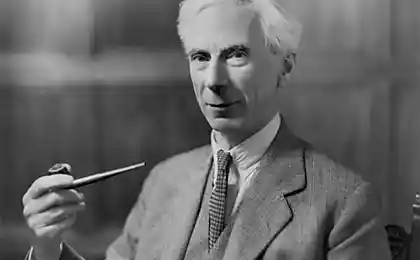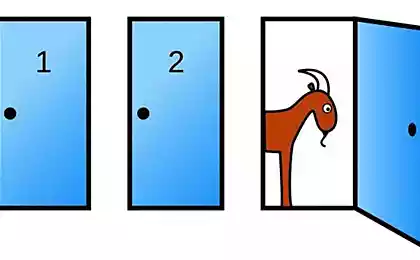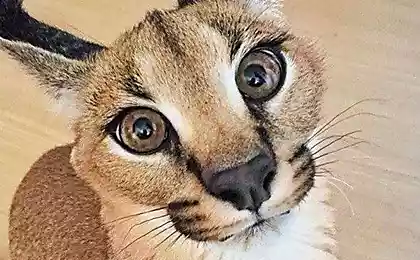832
3 amazing Greek paradox
1. The dilemma of a crocodile is sophistry, that is a logical paradox. This means the false conclusion that, however, when considering the surface seems to be correct. Sophistry is based on the deliberate, conscious violation of the rules of logic. That is the wording of this sophism:
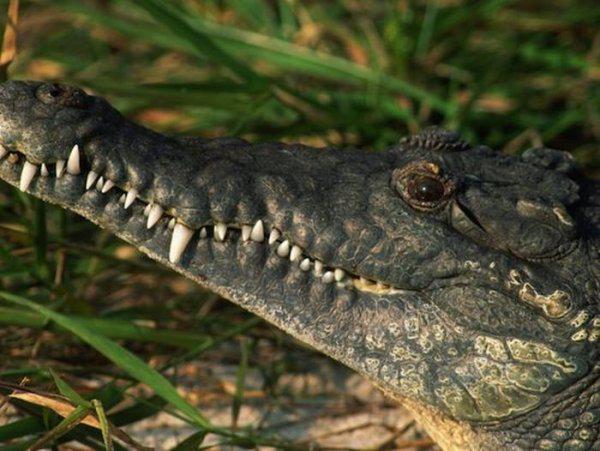
The crocodile grabbed the Egyptian, who was standing on the bank of the river, baby. In her plea to return the child crocodile answered:
- Your misfortune touched me, and I will give you a chance to get back the child. Guess I'll give it to you or not. If you answer correctly, I will return the child. If you can not guess, I did not give up.
Thinking mother replied:
- You did not give me a child.
- You did not get it, - concluded the crocodile. - You said a truth or a lie.
If what I do not give a child - though I did not give it, because otherwise not be told the truth. If you said - is not true, then you did not guess, and I do not give a child by agreement.
However, the mother is the argument did not seem convincing:
- But if I told the truth, then you give me a child, as we have agreed. If I did not guess that you do not give a child, you must give it to me, or what I have said is not wrong.
Who is right: a mother or a crocodile? What binds crocodile his promise? In addition, to send their children, or, on the contrary, not to give it to? And besides to both. This promise is internally inconsistent, and thus, it is not feasible due to the laws of logic.
Another formulation of this paradox:
The missionary found himself at the cannibals and was just in time for dinner. They allowed him to choose the form in which it will be eaten. To do this, he must utter any statement on the condition that, if this statement would be true, they will cook it, and if it is false, it roast.
What should I say missionary?
Of course, he has to say: "You are to roast me." If it really roast, it turns out that he expressed the truth, and therefore it is necessary to cook. If, however, his cook, his statement would be false, and it should just fry. Output from the cannibals will not: from "fry" follows "cook", and vice versa.
2. The paradox of the liar: "What I say now - is false," or "This statement - a lie».
That is, if it is true that this statement is false, the given statement is false. If it is false, that the false statement, then this statement is true. And the chain of reasoning back to the beginning.
Thus, this statement is contrary to the "law of the excluded middle" in binary logic.
The proposal of this kind can not in principle be neither proved nor disproved within the language in which it is stated.
3. The paradox Evatla. In ancient Greek sophist Protagoras learned sophistry, including a judicial eloquence Evatl. By agreement between them Evatl had to pay for the training of 10 thousand pieces of silver only, if he wins his first trial. In case of loss of the first court case he had not been obliged to pay.
However, graduating, Evatl not become involved in litigation. As a result, he considered himself free from the payment of tuition fees. It lasted a long time, patience is exhausted Protagoras, and he filed for his student to court. Thus, it should have been held first trial Evatla.
Protagoras brought the following arguments: "Whatever the decision of the court, Evatl will have to pay. He won his first either process or lose. If you win, you will pay under the contract, if he loses, pay by the court ».
Evatl objected: "Not that, in either case, I do not have to pay. If I win, I will not have to pay by a court decision, if I lose, then the contract ».
Protagoras, for not quite reliable sources, has devoted to this case not survived essay "Litigation on board».
Blue eyes distinguishes 75 fps
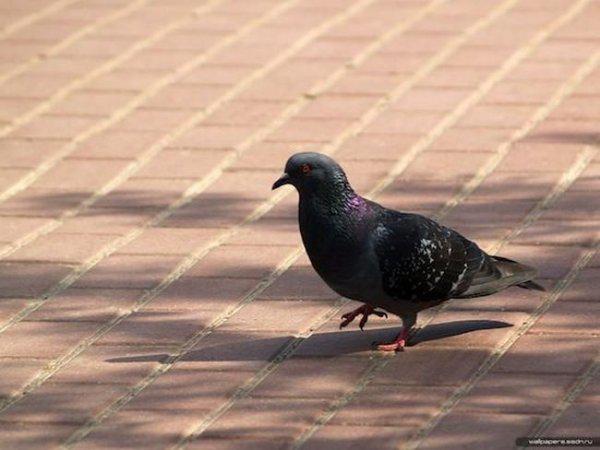
All living organisms that occur on our planet can absorb information in different ways. A unique vision, but rather the ability to perceive the images familiar to us are different pigeons.
Interestingly, the dove sees faster than a human. What does it mean? It's simple: the human eye can perceive 24 frames per second, and the pigeon eye 75.
Imagine that you are viewing the slides. They can be viewed quickly, and can be slow, depending on their own. So for a dove to see 24 frames per second, it is like slow motion to see.
This explains the strange phenomenon, when the pigeon flies right in front of the car or in front of the glass literally millimeters from him and abruptly collapses. It seems to us that they are about and vrezhutsya, and for them it is natural and logical.
10 facts about animals and smells

1. Dogs are so interested in the tails of their companions, because under the tail of the dog is a special gland that is responsible for an individual scent. When frightened dog draw in the tail, not to impersonate.
2. Many animals have favorite smells. In dogs, it is the smell of anise, a cat - valerian, and mint, and lions like good spirits. Camel attracted to the smell of tobacco smoke.
3. When the boar ready to become a father in his saliva appears the aromatic substance trapping female. By the way, why it is domestic pigs (but not dogs have a much more developed intuition) as well seek out truffles in the ground. The fact that the truffles have a flavor similar to "love bouquet" boar.
4. The frogs give their back to smell the female leg, holding it around the nose. It is very exciting and stimulates the female laying eggs.
5. Some of the animals may even mimic the smell of the opposite sex. Snakes males during mating females emit odors. And while their competitors crawl on the wrong track, they were quietly sent to his beloved.
6. Absolutely fantastic olfactory abilities have butterflies Saturn. Males can smell females Saturn at a distance of 11 kilometers, moreover, that at such a distance in cubic meter of air can be only one molecule produced by the female odorant.
7. Sexual attractants emitted fox seem nice person, as reminiscent of the smell of violets.
8. In the northern parts of Sweden to prevent collisions between cars and moose wolf urine is used, which is labeled roadsides.
9. In West Germany, to wild beasts do not go on the road, we began to place along the roads and around the city suburbs items made of porous plastic impregnated with a specially synthesized "human smell". For a man these things lightly lemon smell, but the animals are distinguished in them the smell of butyric acid, ammonia and other components of human sweat.
10. Ants communicate by using odors - their glands produce pheromones in different concentrations for different messages. When an ant dies, a few days talking with him, as a living, until the smell of decomposition products are not interrupted by pheromones. If the substances belonging to the smell of decay, brush with a living ant, it certainly will assign to the cemetery, and will refer again, as he did not come back from there.

The crocodile grabbed the Egyptian, who was standing on the bank of the river, baby. In her plea to return the child crocodile answered:
- Your misfortune touched me, and I will give you a chance to get back the child. Guess I'll give it to you or not. If you answer correctly, I will return the child. If you can not guess, I did not give up.
Thinking mother replied:
- You did not give me a child.
- You did not get it, - concluded the crocodile. - You said a truth or a lie.
If what I do not give a child - though I did not give it, because otherwise not be told the truth. If you said - is not true, then you did not guess, and I do not give a child by agreement.
However, the mother is the argument did not seem convincing:
- But if I told the truth, then you give me a child, as we have agreed. If I did not guess that you do not give a child, you must give it to me, or what I have said is not wrong.
Who is right: a mother or a crocodile? What binds crocodile his promise? In addition, to send their children, or, on the contrary, not to give it to? And besides to both. This promise is internally inconsistent, and thus, it is not feasible due to the laws of logic.
Another formulation of this paradox:
The missionary found himself at the cannibals and was just in time for dinner. They allowed him to choose the form in which it will be eaten. To do this, he must utter any statement on the condition that, if this statement would be true, they will cook it, and if it is false, it roast.
What should I say missionary?
Of course, he has to say: "You are to roast me." If it really roast, it turns out that he expressed the truth, and therefore it is necessary to cook. If, however, his cook, his statement would be false, and it should just fry. Output from the cannibals will not: from "fry" follows "cook", and vice versa.
2. The paradox of the liar: "What I say now - is false," or "This statement - a lie».
That is, if it is true that this statement is false, the given statement is false. If it is false, that the false statement, then this statement is true. And the chain of reasoning back to the beginning.
Thus, this statement is contrary to the "law of the excluded middle" in binary logic.
The proposal of this kind can not in principle be neither proved nor disproved within the language in which it is stated.
3. The paradox Evatla. In ancient Greek sophist Protagoras learned sophistry, including a judicial eloquence Evatl. By agreement between them Evatl had to pay for the training of 10 thousand pieces of silver only, if he wins his first trial. In case of loss of the first court case he had not been obliged to pay.
However, graduating, Evatl not become involved in litigation. As a result, he considered himself free from the payment of tuition fees. It lasted a long time, patience is exhausted Protagoras, and he filed for his student to court. Thus, it should have been held first trial Evatla.
Protagoras brought the following arguments: "Whatever the decision of the court, Evatl will have to pay. He won his first either process or lose. If you win, you will pay under the contract, if he loses, pay by the court ».
Evatl objected: "Not that, in either case, I do not have to pay. If I win, I will not have to pay by a court decision, if I lose, then the contract ».
Protagoras, for not quite reliable sources, has devoted to this case not survived essay "Litigation on board».
Blue eyes distinguishes 75 fps

All living organisms that occur on our planet can absorb information in different ways. A unique vision, but rather the ability to perceive the images familiar to us are different pigeons.
Interestingly, the dove sees faster than a human. What does it mean? It's simple: the human eye can perceive 24 frames per second, and the pigeon eye 75.
Imagine that you are viewing the slides. They can be viewed quickly, and can be slow, depending on their own. So for a dove to see 24 frames per second, it is like slow motion to see.
This explains the strange phenomenon, when the pigeon flies right in front of the car or in front of the glass literally millimeters from him and abruptly collapses. It seems to us that they are about and vrezhutsya, and for them it is natural and logical.
10 facts about animals and smells

1. Dogs are so interested in the tails of their companions, because under the tail of the dog is a special gland that is responsible for an individual scent. When frightened dog draw in the tail, not to impersonate.
2. Many animals have favorite smells. In dogs, it is the smell of anise, a cat - valerian, and mint, and lions like good spirits. Camel attracted to the smell of tobacco smoke.
3. When the boar ready to become a father in his saliva appears the aromatic substance trapping female. By the way, why it is domestic pigs (but not dogs have a much more developed intuition) as well seek out truffles in the ground. The fact that the truffles have a flavor similar to "love bouquet" boar.
4. The frogs give their back to smell the female leg, holding it around the nose. It is very exciting and stimulates the female laying eggs.
5. Some of the animals may even mimic the smell of the opposite sex. Snakes males during mating females emit odors. And while their competitors crawl on the wrong track, they were quietly sent to his beloved.
6. Absolutely fantastic olfactory abilities have butterflies Saturn. Males can smell females Saturn at a distance of 11 kilometers, moreover, that at such a distance in cubic meter of air can be only one molecule produced by the female odorant.
7. Sexual attractants emitted fox seem nice person, as reminiscent of the smell of violets.
8. In the northern parts of Sweden to prevent collisions between cars and moose wolf urine is used, which is labeled roadsides.
9. In West Germany, to wild beasts do not go on the road, we began to place along the roads and around the city suburbs items made of porous plastic impregnated with a specially synthesized "human smell". For a man these things lightly lemon smell, but the animals are distinguished in them the smell of butyric acid, ammonia and other components of human sweat.
10. Ants communicate by using odors - their glands produce pheromones in different concentrations for different messages. When an ant dies, a few days talking with him, as a living, until the smell of decomposition products are not interrupted by pheromones. If the substances belonging to the smell of decay, brush with a living ant, it certainly will assign to the cemetery, and will refer again, as he did not come back from there.

